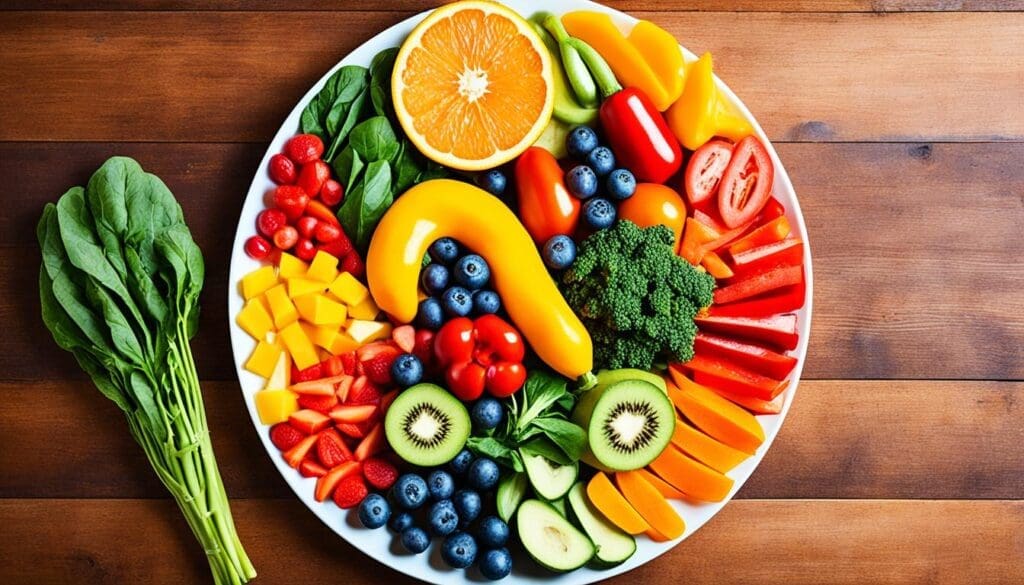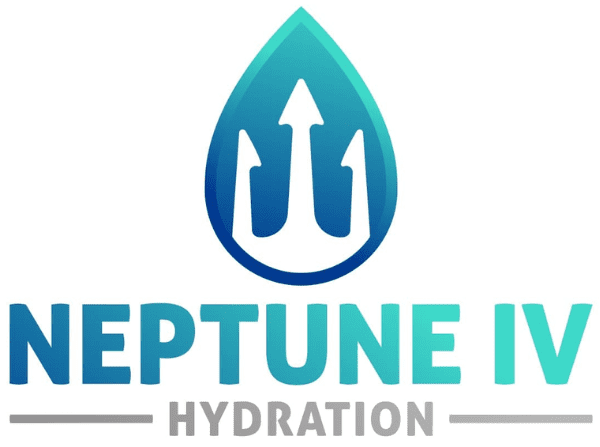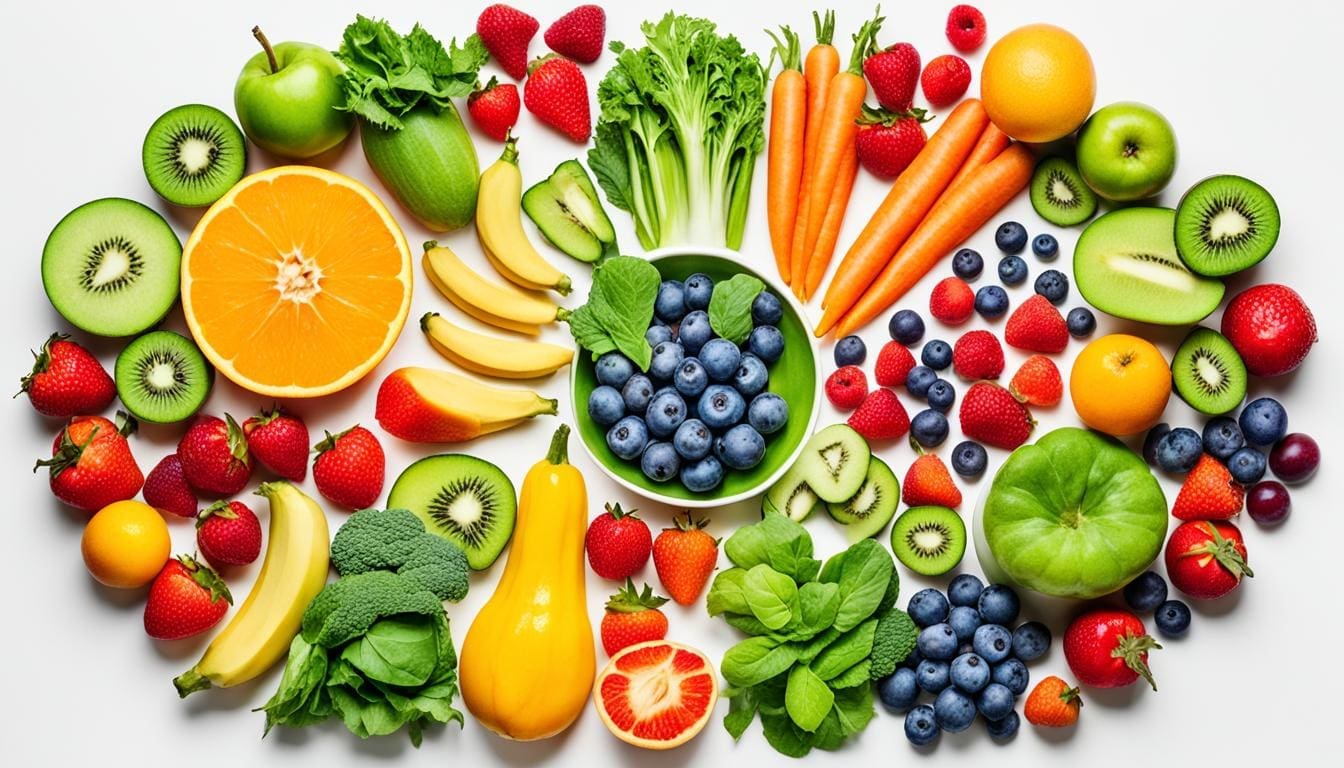One cup of bell pepper gives over twice the daily value for vitamin C1. This shows how key vitamins are for great skin. Our skin is the biggest part of our body. It guards us from harm outside. Thus, taking in the right nutrients is crucial.
A balanced diet keeps our skin young, moist, and stretchy. It must have omega-3s for skin flexibility. Proteins like collagen and keratin are very important too. Also, Vitamin A stops sun harm and keeps the skin moist.
Key Takeaways
- Skin health is vital for overall wellbeing, functioning as a barrier against environmental hazards.
- Omega-3 fatty acids and proteins like collagen are essential for maintaining moist, firm, and flexible skin.
- Vitamin A helps prevent sun damage and keeps skin hydrated.
- Supplementing your diet or consulting with a doctor can ensure you meet your skin care vitamins needs.
- A balanced, nutrient-rich diet includes fatty fish, green leafy vegetables, eggs, nuts, seeds, and legumes.
Why Vitamins Are Essential for Skin Health
Vitamins are key for our skin’s health and look. They help with cell growth, keep oil levels in check, and shield us from the sun and other factors. For great skin, it’s important to eat foods packed with these vitamins.
Role of Vitamins in Skin Barrier Function
Vitamins do wonders for our skin. Vitamin A is vital for making new skin cells and fixing them. It also controls oil, which helps fight acne. Plus, it boosts collagen, making your skin smoother and less wrinkled2.
Vitamin C protects our skin from harm caused by pollution and the sun. It’s key for making collagen, which tightens and brightens your skin2. Vitamin D helps keep our skin and immune system strong. It also regulates oil, fighting acne2. Getting these vitamins from food or supplements helps make our skin’s barrier stronger.

Nutrient Deficits and Skin Conditions
Lacking important nutrients can lead to various skin problems. This includes dry, bumpy skin, slow healing, and issues like eczema. Without enough Niacin, your skin barrier won’t work as well, and you might have more dark spots. The lack of Vitamin K means weaker blood vessels and more bruises and irritations2. Signs of a vitamin shortage on the skin are darkening, slow healing, and dryness3. It’s very important to eat well or use supplements to avoid these issues.
To wrap up, vitamins are super important for our skin. Eating enough of them, or taking supplements, can really boost our skin’s health and toughness.
Vitamin A: The Key to Cell Growth and Repair
Vitamin A is key for our skin’s health because it helps our cells grow and fix themselves. How much you need depends on your age and if you’re a man or a woman. Men need about 900 mcg, women 700 mcg, and kids and teens between 300–600 mcg per day4. This nutrient also fights sun damage by stopping collagen from breaking down. This can reduce early aging signs.

How Vitamin A Prevents Sun Damage
Vitamin A protects our skin from the sun’s harmful UV rays. It helps our skin heal and keeps skin cells healthy. People over 50 have seen a 25% reduced risk of severe eye problems by taking beta-carotene4. Cooking food makes beta-carotene easier for our bodies to use, making it more effective5.
Vitamin A-Rich Foods and Supplements
It’s important to get enough vitamin A from both your diet and maybe supplements. In the U.S., most vitamin A comes from liver, fish, eggs, and dairy5. If you’re thinking of taking a vitamin A supplement, check with a doctor first. Adding vitamin A to foods like milk and cereals can also help. But be careful not to have too much; it can make you sick4.
Vitamin C: Essential for Collagen Production
Vitamin C is key for keeping our skin bouncy and tight. It’s found in many skincare products at levels of 10% to 20%. This shows how important it is for making collagen6. Collagen keeps our skin from sagging. Vitamin C also works as a shield against skin cancer through its antioxidant power, stopping free radicals7. Free radicals can damage our skin. Plus, by stopping melanin, vitamin C makes our skin tone even and bright, reducing dark spots6.
Also, a form of vitamin C called magnesium ascorbyl phosphate can help our skin hold moisture better. It cuts down TEWL by 19%, improving how hydrated our skin feels6. It also fights against redness, making our skin look smoother7.
But that’s not all. Vitamin C helps our skin heal faster. It does this by boosting collagen creation and cutting down on inflammation. This is crucial for fixing our skin and avoiding bruises8.
To get the best from vitamin C, eat lots of it. Foods like oranges, red peppers, and green veggies can really help your skin out. They boost your skin’s defense and aid in making more collagen8. Combine this with using vitamin C products on your skin for great looking, strong skin against the world’s challenges. This way, you’ll keep your skin shining and healthy.
Benefits of Vitamin E for Skin
Vitamin E is known for its strong antioxidant powers. It protects skin cells. This key nutrient is a top lipophilic antioxidant in our skin. It keeps our skin healthy and looking its best9. It stops free radicals and fights against bad environmental effects. This keeps your skin looking young.
Antioxidant Properties of Vitamin E
Alpha-tocopherol, a type of vitamin E, is great at protecting skin cells from harm10. When you apply it on your skin, it boosts skin protection. This is because it increases the level of vitamin E right where it’s needed. Also, using vitamin E along with vitamin C defends your skin from the sun’s UV rays better than just one of them would9.
Sources of Vitamin E
To get all of vitamin E’s antioxidant goodness, eat foods that are rich in it. These include wheat germ oil, sunflower seeds, almonds, and more10. Everyone should aim for 15 milligrams of vitamin E a day. If you’re breastfeeding, you might need up to 19 milligrams daily for the best skin health11. You can also find vitamin E in many skin care products, like lotions and oils, that help protect and keep your skin young11.
How Vitamin D Supports Skin Health
Vitamin D is very important for skin health. It helps with cell growth and fixing cells. It also makes the skin strong and helps fight off things that can harm it. The sun makes our skin produce vitamin D12. Getting some sun, about 5-30 minutes, a couple of times a week is great for your skin12. But, where you live, the time of the year, and other things can change how much vitamin D your skin makes12.
Vitamin D also protects us from some skin cancers, like melanoma. It helps the skin heal after being in the sun. It makes our skin use calcium better and stays strong13. We need vitamin D but too much sun is bad for us. A study in the UK found less sun can help lower the chances of skin cancer, showing the importance of being careful in the sun13.
But, wearing sunscreen with SPF 8 makes it hard for our skin to make vitamin D12. This means we must be smart about protecting our skin while also getting enough vitamin D. Besides the sun, eating things like fish and taking supplements is a good idea to keep our skin and body healthy.
Not having enough vitamin D can cause problems for our skin. A study found that many people in Canada had low vitamin D levels, especially in winter. This can lead to skin issues13. Balance is key. We should get some sun and eat foods rich in vitamin D for the best skin health.
The Importance of Vitamin K for Skin
Vitamin K keeps our skin healthy by lessening dark circles and strengthening blood vessels. Using an eye cream with vitamin K, along with retinol and vitamins C and E, can make a big difference for dark circles14. It also helps cut down bruising after laser treatments14.
Vitamin K’s Role in Reducing Dark Circles
Vitamin K works wonders for dark circles under the eyes. It’s because it makes our blood vessel walls stronger, helping blood move better and reducing the dark look. Mixing vitamin K with moisturing ingredients can also make broken capillaries look better14. Plus, its anti-inflammatory effects lessen redness and irritation, making your skin tone more even14.
Dietary Sources of Vitamin K
Eating foods rich in vitamin K is a great way to get its skin benefits. Think leafy greens like kale, spinach, and broccoli. These veggies are full of vitamin K. Adding them to your meals and using skin products with vitamin K can really boost your skin’s health, cut dark circles, and strengthen your blood vessel walls.
Biotin for Healthy Skin, Hair, and Nails
Biotin is Vitamin B7, vital for skin health, and helps hair and nails grow. Knowing where to find it can make you enjoy its benefits more.
Functions of Biotin
Biotin is great for hair and nails. It makes keratin, a protein needed for strong hair and nails. It’s also good for the skin by helping make healthy fats. Even though using just Biotin might not show big changes for hair, skin, or nails, it’s still good to make sure you get enough15.
Common Sources of Biotin
Adding foods with Biotin to your meals can boost your skin, hair, and nails. Eggs, nuts, and leafy greens are top sources. Eating a variety of these foods keeps your Biotin levels up.
Biotin Booster IM Shot
Biotin booster shots are for those who want quick results. They inject a large amount of biotin into your blood. This might speed up better skin and help your hair and nails grow stronger. Always talk to a doctor before trying booster shots to make sure they’re right for you.
Six Important Vitamins for Healthy Skin
To get healthy skin, you need to focus on special vitamins. Vitamin A, or retinol, keeps your skin looking young by reducing lines and wrinkles3. Vitamin C is great for making collagen and fixing sun damage. This helps your skin look and feel healthy3. Vitamin D is crucial for skin health as it’s often low due to avoiding the sun too much3
Vitamin E works like a shield against the sun and helps heal burnt skin, adding to its radiance3. Vitamin K helps heal wounds and lessens bruises, keeping your skin in good shape3. Nicotinamide, a type of Vitamin B3, can lower the chance of some skin cancers. This shows we need to include these vitamins in our daily meals3.
Biotin, also called Vitamin B7, fights hyperpigmentation and speeds up healing of skin injuries3. But remember, Biotin and riboflavin might not do much for healthy skin if you’re already getting enough3.
Vitamins A, C, D, E, K, and Biotin work together to keep your skin shining. Mix them in your meals or take supplements as recommended by experts to fight against damage, boost your immune system, and help repair skin cells through a nutrient-rich diet for skin health. This approach makes sure your skin stays strong, healthy, and glowing.
Neptune IV Hydration: Boost Your Skin Health
Many people are now focusing more on their skin health. Neptune IV Hydration is a new, attractive choice for skin care through mobile iv therapy. It introduces a unique and handy method to boost skin moisture and health.
Overview of Mobile IV Therapy
Mobile IV therapy is changing the game in how we get essential vitamins and nutrients. It puts them directly into our bloodstream. This means our body gets all the good stuff without any waste, ideal for improving our skin health. Mobile IV therapy is a revolutionary way of receiving essential vitamins and nutrients directly into our bloodstream. Gone are the days of relying solely on oral supplements or topical creams to improve our skin health. With mobile IV therapy, we can now reap the benefits of vitamins for our skin on a whole new level.
The convenience of mobile IV therapy is an added bonus. With IVs that can be administered at home or on-the-go, we no longer have to spend hours at a clinic or hospital receiving our essential nutrients. Instead, we can simply schedule an appointment with a mobile IV therapy provider, and have the treatment done wherever and whenever is most convenient for us.
In conclusion, mobile IV therapy is changing the game when it comes to improving skin health. By directly infusing our bodies with essential vitamins, such as vitamin A and vitamin K, we can achieve more noticeable results and enjoy the convenience of treatments that can be done wherever and whenever we choose. Say goodbye to relying solely on oral or topical methods, and embrace the power of mobile IV therapy for healthier, glowing skin.
Wellness/Energy IV Treatment with Neptune IV Hydration
Neptune IV Hydration’s Wellness/Energy IV Treatment helps refresh and energize the body. At $139, it includes vital vitamins and fluids to hydrate and fill us with essential nutrients. People love the renewed, hydrated look of their skin after the treatment. It’s perfect for anyone wanting to boost their skin hydration.
This IV treatment is especially great because it can be done at home or any preferred place. It’s perfect for our busy lives. More and more, people are choosing this kind of personal and quick wellness care. Neptune IV Hydration is at the top of the list for those wanting better skin and health.
Conclusion
In the quest for better skin, eating a balanced diet with the right vitamins is key. Vitamins A, C, D, E, K, and biotin are essential for healthy skin. You can get these through food or top-quality supplements. For a quick and easy boost, treatments like Neptune IV Hydration’s mobile therapy are great. They target your skin and improve your health.
Vitamins A, C, and D are especially important for keeping your skin clear and strong. Adults need about 700-900 micrograms of Vitamin A a day for their skin cells to grow and heal. Foods like oranges, peppers, strawberries, and broccoli can make your body produce more collagen and fight off aging. Vitamin D from fish, cheese, and fortified foods helps your skin protect and repair itself. Including these foods in your diet makes for great skin care.
Minerals are also key for your skin. Zinc keeps your skin from being too oily and helps stop acne. Selenium fights off damage from the sun and slows down aging. Copper is great at making collagen and killing harmful bacteria on your skin. Plus, magnesium can calm down red and itchy skin, perfect for acne or eczema. Knowing about these minerals can help you build a strong skin care plan.
Finally, it’s critical to talk to a doctor before starting any new vitamin or supplement routine. With their advice, you can really boost and maintain your skin health by following a dependable skin care plan. To learn more about how to get fresh and clear skin, check out this comprehensive resource.
FAQ
What are six important vitamins for healthy skin?
Six vital vitamins for good skin are Vitamin A, C, E, D, K, and Biotin. They help keep skin healthy, grow cells, shield against harm and make skin glow.
Why are vitamins essential for skin health?
Vitamins keep skin strong and working well. They help grow cells, control oils, and shield from the sun and pollution. Without them, skin might become dry or more prone to issues like eczema.
How does Vitamin A benefit the skin?
Vitamin A is key for cell growth, fixing skin, and fighting sun damage. It protects against collagen breakdown, which causes aging signs. Eating greens, eggs, and supplements, with a doctor’s advice, can keep your Vitamin A levels up.
What role does Vitamin C play in skin health?
Vitamin C boosts collagen, keeping skin flexible and firm. It’s also a strong antioxidant, guarding skin from free radicals and reducing skin cancer risks. Foods like oranges, red peppers, and greens are great sources.
What are the benefits of Vitamin E for the skin?
Vitamin E is a top-notch antioxidant, shielding skin from wrinkles, sagging, and cancer. It also lowers skin damage from the sun. Nuts, seeds, greens, and oils are packed with Vitamin E.
How does Vitamin D support skin health?
Vitamin D helps protect against skin cancer and fights off infections. It keeps skin strong and improves its defense. Getting sunlight, eating fish, fortified foods, and taking supplements all help your Vitamin D levels.
Why is Vitamin K important for the skin?
Vitamin K boosts blood vessel health, lessening dark circles under eyes. It’s also an anti-inflammatory, cutting down on skin redness and itching. Eating lots of greens and veggies helps add this vitamin to your diet.
How does Biotin contribute to skin health?
Biotin, also known as Vitamin B7, keeps skin glowing and aids hair and nail growth. It helps make keratin, found in eggs, nuts, and greens. Biotin shots offer quick boosts, but talking to a health expert first is wise.
What is Neptune IV Hydration’s Wellness/Energy IV Treatment?
Neptune IV Hydration offers a Wellness/Energy IV Treatment. It costs 9 and is a mobile service. It includes important vitamins and fluids to hydrate, nourish, and refresh your skin. All this can be done at a place of your choice.
Source Links
- https://www.bswhealth.com/blog/eat-your-way-to-glowing-skin-with-these-6-vitamins-and-nutrients
- https://facecliniclondon.com/blog/vitamins-micronutrients-for-healthy-skin-health/
- https://www.verywellhealth.com/vitamins-for-the-skin-5084899
- https://www.healthline.com/nutrition/vitamin-a-benefits
- https://ods.od.nih.gov/factsheets/VitaminA-HealthProfessional/
- https://www.healthline.com/health/beauty-skin-care/vitamin-c-serum-benefits
- https://lpi.oregonstate.edu/mic/health-disease/skin-health/vitamin-C
- https://www.ncbi.nlm.nih.gov/pmc/articles/PMC5579659/
- https://lpi.oregonstate.edu/mic/health-disease/skin-health/vitamin-E
- https://www.healthline.com/health/all-about-vitamin-e
- https://www.healthline.com/health/vitamin-e-for-skin
- https://lpi.oregonstate.edu/mic/health-disease/skin-health/vitamin-D
- https://www.ncbi.nlm.nih.gov/pmc/articles/PMC4642156/
- https://www.lovelyskin.com/blog/p/what-are-the-benefits-of-vitamin-k
- https://www.healthline.com/nutrition/best-hair-skin-and-nails-vitamins

